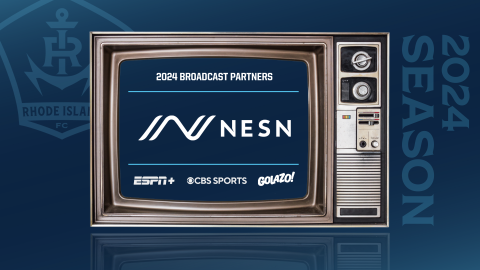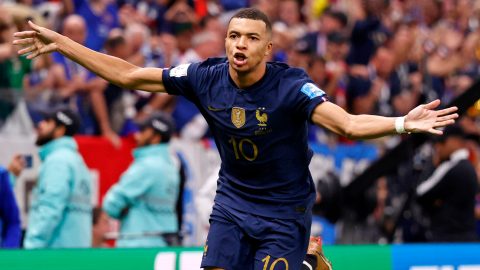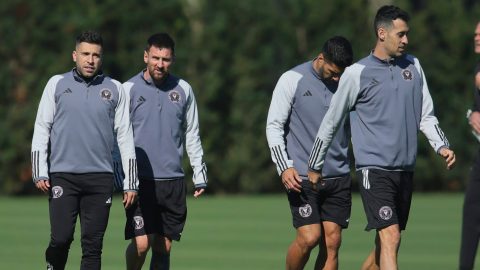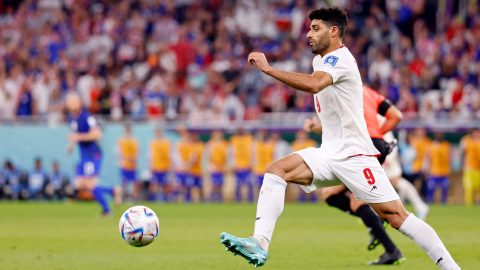 You can’t always get what you want. But when it happens, you often get what you deserve.
You can’t always get what you want. But when it happens, you often get what you deserve.
The Brazilian Football Confederation (CBF) hired Luiz Felipe Scolari as head coach of its men’s national team on Thursday. When Scolari signed a contract to lead Brazil through the 2014 FIFA World Cup, the CBF got its man, and the man got the job he really wanted.
Scolari is a legend in his country, having led Brazil to its fifth World Cup title back in 2002. He’ll be joined at the hip by another domestic coaching giant. Carlos Alberto Parreira, who led Brazil to the 1994 World Cup title, will be the team’s technical director.
Their task is simple: Get Brazil out of its current rut, unite and please its hundreds of millions of fans and lead the team to glory in 2014. Brazil will host that tournament, and failure is not an option.
But the CBF is making a huge mistake. It leaves the job of improving and perfecting a deeply flawed team, one ousted coach Mano Menezes constructed over the last two-and-a-half years, to two conquerors of a bygone era.
Scolari, 64, and Parreira, 69, are products of the time when pragmatism and brute force ruled the day. But international soccer has changed since 2002. The pendulum has swung back toward the domain (albeit not solely) of the skillful little man, the romantic and the dreamer. We have the likes of Spain, FC Barcelona, Pep Guardiola and Lionel Messi to thank for this.
Brazil still holds a dear place in the hearts of soccer’s romantics, but hiring Scolari and Parreira — two coaches who won, but didn’t win in Brazilian-enough style to please the masses and keep their jobs — could usher the yellow jersey out of the dreamers’ hearts and minds, perhaps forever.
Brazil is living in the most important moment of its soccer history. The old joke says “Brazil is the country of the future … and always will be.” But times are changing. The country has emerged as a world leader in providing food and energy, and has begun to assert itself both diplomatically and militarily over the last 10 years.
Victory in 2014 is supposed to exorcise the demons of the past. Brazil hosted the World Cup in 1950, but lost to Uruguay in the final in front of 200,000 fans. The 2-1 defeat caused a national trauma, the effects of which are still felt to this day. Lifting the solid gold trophy at the newly renovated Maracana Stadium would tighten the bonds between Brazil’s past, present and future — in soccer and beyond.
Many ask if Brazil will be ready to host the tournament in time for kickoff. Construction of roads, rails, ports and stadiums lags behind schedule. Many more ask if the national team will be ready to win the tournament in less than two years’ time. It’s highly unlikely that this will be the case.
The Brazilian teams from 1994 to 2006 were chock-full of champions. Those players were in leading roles at Europe’s biggest clubs and winning the most prestigious individual and team honors. There were a number of stars willing to share the burden of leadership (on and off the field) and the results speak for themselves, as Brazil appeared in three of four World Cup finals during that time period. Today’s Brazil is different. A few very good young players are coming through the ranks, but there’s a dearth of players in their prime years who are playing key roles at Europe’s biggest clubs.
Menezes didn’t simply overlook a bunch of great players. Dani Alves, 29, is still at Barcelona, but should Brazil count on the buccaneering fullback to lead the way? Kaka and Ronaldinho are well past their best. Robinho, 28, peaked four years ago. He and Adriano are the poster children for Brazil’s lost generation. Injuries have kept 23-year-old Pato on the shelf for the better part of the last three years. Perhaps all of them will recover their best form over the next 18 months, but don’t bet on that happening.
Questions surround Scolari’s managerial ability at this point in his career. He was considered one of the world’s best coaches from 2000 to 2008, but he’s achieved little in the last four years. A failed stint as Chelsea manager was the most high-profile slip. He guided Palmeiras to the Brazilian cup this year, but that competition was ignored by Brazil’s best teams, who were competing in the Copa Libertadores instead. Scolari jumped ship in September, and Palmeiras was relegated two months later.
Scolari’s twin gifts are implementing a pragmatic approach and leading and motivating players with something akin to fatherly love (many national-team players during his previous reign were brought up in fatherless homes). His methods worked spectacularly well 10 years ago, but the world has changed and his players have changed. His approach might not have the same dramatic effect as it had in 2002. For example, Brazil’s star player today is Neymar. The 20-year-old is inseparable from his father. Also, Scolari may be able to insulate his team from the enormous pressure that will only increase ahead of the World Cup. But can he dramatically improve them as individuals? It’s not a national team manager’s job, so let’s say no.
Scolari is no white knight riding to the rescue, and the circumstances surrounding his hiring may not add to the reservoir of goodwill the public has toward him. Menezes was fired because the CBF wanted someone to use “new methods” to prepare the team for 2014. Scolari and Parreira don’t exactly fit that billing.
Also, Scolari said he hadn’t spoken to the CBF about the job as recently as Wednesday. It’s strange that he was accepted the position less than 24 hours later. The white-haired tactician was hand-picked by new CBF president Jose Maria Marin, who must host and win a first-class World Cup to keep his job. Misleading the public is a dangerous approach for both men to take. The masses will remember it if and when results don’t meet expectations.
Brazil’s status as keepers of the beautiful game’s sacred flame was created in the 1960s, cemented in the summer of 1970 and reaffirmed in 1982. It maintained that reputation (deservedly or not) for the last three decades, but it has been some time since Brazil thrilled neutrals with a beautiful style of play. Brazil’s victories in 1994 and 2002 were achieved by mixing the old and new ways of playing, but history doesn’t celebrate like it does those that came before them.
In 2012, Brazil has fallen behind Argentina and Uruguay in the South American pecking order. Europe’s best teams are considered to be ahead of the South American trio. If Brazil fails to win in 2014 or capture the fans’ imagination with the “beautiful game,” it will lose its status as the world’s ideal national team — and the Nike money that comes with it.
Have a question for Marcus Kwesi O’Mard? Send it to him via Twitter at @NESNsoccer, NESN Soccer’s Facebook page or send it here. He will pick a few questions to answer every week for his mailbag.



